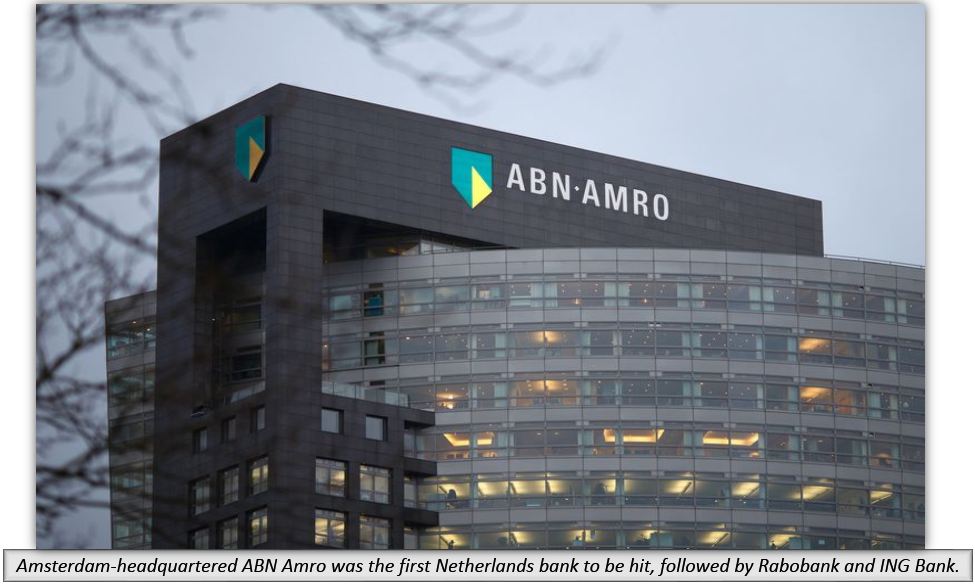Up until now, no evidence shows who is behind the enormously "distributed denial of service" (DDoS) attacks on Netherlands banks and government sites that were active from the last weekend to Tuesday. Initial reports suggesting a Russian connection appears baseless.

The assaults started only two or three days after media reports expressed that Dutch intelligence tipped off their American partners about state-supported Russian covert agents hacking the mechanical assembly of the Democratic Party and taking the scandalous "leaked emails" that may have influenced the 2016 elections.
The publication NL Times revealed that the Bratislava-based security organization ESET had recognized the assaults to be originating from servers in Russia.
As a fact, no obvious proof can clearly say Russian criminals are to be blamed, because DDoS assaults can hop everywhere before finally hitting their objective, constantly making attribution troublesome.
However, when ZDNet reached the security firm, it denied consistently claiming a Russian relationship. "This report around an ESET assert was a grievous error and distortion by one Dutch news outlet and was amended by them," representative Branislav Ondrasik said.
The first attack was leashed on bank ABN Amro on Saturday, while ING Bank and Rabobank were tapped on Monday, along with the Dutch Taxation Authority. All four were knocked again on Tuesday, but this time their defences reacted way better.
ABN Amro told ZDNet on Wednesday morning that the assault is not active at present. The bank responded saying that the DDoS attack did not hinder the security of its administration - it just thumped them out.
"DDoS attacks this weekend were heavier than past ones and kept going longer. Right now, it is obscure who is behind the assaults, and in by a wide margin most cases, the origin of an assault is never found," ABN Amro said.
Rabobank representative Margo van Wijgerden said most assaults on the organization's servers did not have any effect on its customers. In any case, a DDoS that occurred at 9.07am on Monday stopped clients from signing in for around 10 minutes. After that time, despite everything they had issues with the connection for a couple of hours.
"There have been two attacks Later this Monday and yesterday, however with no effect," she said. "We don't know who is behind the attacks. Police is working on the case and will soon come up something."
Police representative Suzanne van de Graaf said the experts couldn't share any data concerning the ongoing investigation.
Here are few tips we recommend that can protect you against malware.
- Keep your Windows Updated: To avoid such infections, we recommend that you should always keep your system updated through automatic windows update. By doing this you can keep your device free from virus. According to the survey, outdated/older versions of Windows operating system are an easy target.
- Third-party installation: Try to avoid freeware download websites as they usually install bundled of software with any installer or stub file.
- Regular Backup: Regular and periodical backup helps you to keep your data safe in case the system is infected by any kind of virus or any other infection. Thus always backup important files regularly on a cloud drive or an external hard drive.
- Always have an Anti-Virus: Precaution is better than cure. We recommend that you install an antivirus like McAfee or a good Malware Removal Tool like Download Free Virus RemovalTool
- Enable your popup blocker: Install a powerful ad- blocker for Chrome, Mozilla, and IE.
